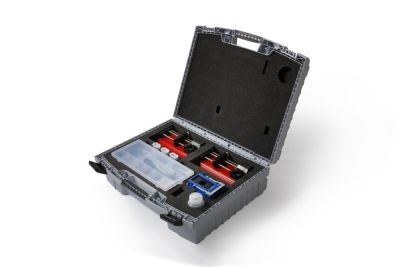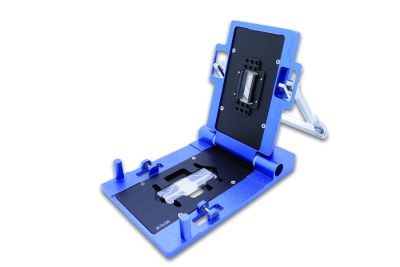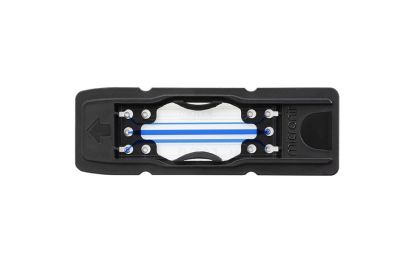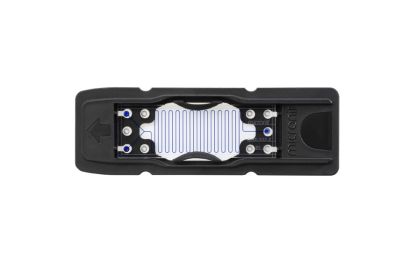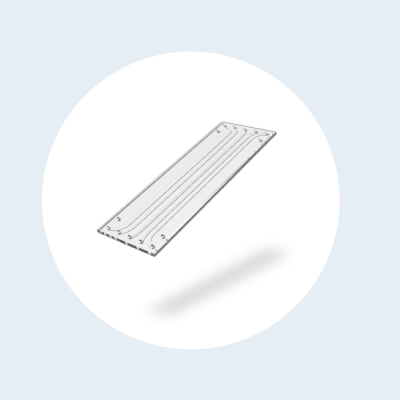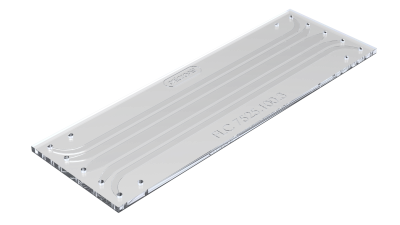shopping_basket
Developing and Manufacturing Custom Flow Cells
Micronit is an experienced development and manufacturing partner for microfluidic components and consumables. We are open to partners that wish to develop a new product, tailored to their specific wishes and needs. We run multiple projects at different maturity stages from development to manufacturing. Our customers, varying from ambitious start-ups to one of the key global players in the next gen sequencing market, rely on our track record of years of supplying our optical grade, high-quality flow cells and other microfluidic products. We also support leading academics in providing the tools for groundbreaking research.
About Microfluidic Flow Cells
Flow cells are microfluidic devices featuring one or more channels, that are designed to guide fluids effectively and create optimal circumstances for visual observation. This makes flow cells extremely helpful for applications such as cell counting, sorting, manipulation, imaging, particle counting, biomarker detection, and flow visualization.




Flow cells with the best optical quality
The most high-end material for manufacturing of flow cells is glass. Glass has exceptional optical properties and is one of the most durable materials available. It is also compatible with most aggressive chemicals and can withstand high temperatures without shape changes. For instance, we use D263 bio glass that minimizes autofluorescence when employing fluorescent markers with emissions above 600nm. Besides the fact that most customers prefer glass, we can customize flow cells using other materials or hybrid combinations.
The etching technique we use to process the glass creates smooth and optically transparent channels. Due to the extreme smoothness of the channels and possibility to apply a thin bottom layer, these flow cells are very suitable for confocal microscopy and enable high-resolution imaging.
Why 20% of Global Sequencing Platforms Trust Micronit for Flow Cells
A glass flow cell is functionalized by leading suppliers of NGS sequencing technology with the correct surface chemistry. Together with a special set of reagents it creates a special biochemistry to create fluorescent signals that will be read by the sequencer. Presently, approximately 20% of global sequencing platforms rely on flow cells manufactured by Micronit.




The growing demand of Flow Cells
Flow cells are at the heart of rapid advancements in genomic technologies. Innovations such as image-based cell sorting and combining gene expression with chromatin accessibility are pushing research and clinical applications to new heights. Micronit plays a crucial role in these developments by providing high-quality microfluidic chips essential for these advanced technologies. These contributions accelerate the discovery of new therapies and enhance the efficiency of genomic research, redefining the future of healthcare.
As the global need for flow cell technology continues to grow, Micronit is uniquely positioned to support innovators and pioneers.
Micronit Assists in the Flow Cells you need
in 3 simple steps
1. Submit your idea
Share your idea or design with us to initiate the prototyping process. We're eager to understand your project's unique requirements.
2. Technical readiness
After receiving your submission and reviewing your design, we'll discuss your specific needs in detail, ensuring alignment with both your objectives and our expertise.
3. Production
Finally, we transition to the technical development and production, transforming your concept into a prototype.
Submit your idea
Catalogue Products
We have developed several flow cells that can be ordered directly from our web store. The products in our webstore are made in the same way as the flow cells of market leaders in multi-omics and sequencing. Besides hermetically sealed flow cells, we also offer resealable flow cells. Designed for continuous access to the inside of the microfluidic chip. Made from a durable elastomer and glass, they are able to withstand rigorous cleaning and allow for multiple reuses.



